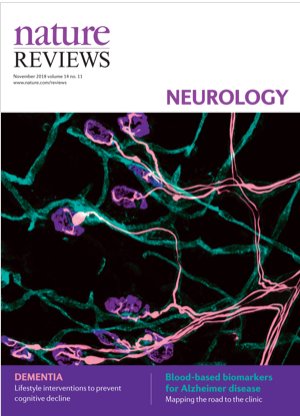Genetics, Epigenetics & the Immune System
Psychiatric Disorders &
NEURO- INFLAMMATION
|
"Cognitive and Social Abilities Rely on Fine-Tuned Equilibrium of Innate & Adaptive Immune Responses" Immunopsychiatry: Novel perspectives on Brain Disorders (2019) Affiliations
CRITICAL NEW UNDERSTANDING -- Excerpt from Abstract Our cognitive and social abilities rely on a highly sensitive and fine-tuned equilibrium of immune responses that involve both innate and adaptive immunity. Autoimmunity, chronic inflammation, infection and psychosocial stress can tip the scales towards disruption of higher-order networks. However, not only classical neuroinflammatory diseases, such as multiple sclerosis and autoimmune encephalitis, are caused by immune dysregulation that affects CNS function. Recent insight indicates that similar processes are involved in psychiatric diseases such as schizophrenia, autism spectrum disorder, bipolar disorder and depression. Pathways that are common to these disorders include microglial activation, pro-inflammatory cytokines, molecular mimicry, anti-neuronal autoantibodies, self-reactive T cells and disturbance of the blood-brain barrier. These discoveries challenge our traditional classification of neurological and psychiatric diseases. New clinical paths are required to identify subgroups of neuropsychiatric disorders that are phenotypically distinct but pathogenically related and to pave the way for mechanism-based immune treatments. |
Fishberg Department of Neuroscience and Friedman Brain Institute, Icahn School of Medicine at Mount Sinai, New York, New York, USA; Abstract Psychiatric disorders are complex multifactorial disorders involving chronic alterations in neural circuit structure and function. [Orchid Note: This is really getting to Caltech Neuroscientist David Anderson's point that "The brain is more than a bag of chemical soup." The more sophisticated conceptualization of billions of neural circuits with different functions is a big step up in conceptualization from a pretty myopic focus on a handful of neurotransmitters such as serotonin.] While genetic factors play a role in the etiology of disorders such as depression, addiction, and schizophrenia, relatively high rates of discordance among identical twins clearly point to the importance of additional factors. Environmental factors, such as stress, play a major role in the psychiatric disorders by inducing stable changes in gene expression, neural circuit function, and ultimately behavior. Insults at the developmental stage and in adulthood appear to induce distinct maladaptations. Increasing evidence indicates that these sustained abnormalities are maintained by epigenetic modifications in specific brain regions. Indeed, transcriptional dysregulation and associated aberrant epigenetic regulation is a unifying theme in psychiatric disorders. Aspects of depression can be modeled in animals by inducing disease-like states through environmental manipulations, and these studies can provide a more general understanding of epigenetic mechanisms in psychiatric disorders. Understanding how environmental factors recruit the epigenetic machinery in animal models is providing new insights into disease mechanisms in humans. Biology or Environment: IT'S BOTH

It's taken human beings a long time to discover and understand as much as we do regarding the complicated biology and environmental factors associated with psychiatric disorders. If you saw the biology, you tended to discount the environment; and if you saw the environment, you tended to discount the biology. There's a lot to spark discussion and dialogue on important Public Health, Criminal Justice, Employment and Public Policy Issues. If we need more information, let's get it. If we need better systems of Translational Research & Medicine -- let's innovate and create them. |


